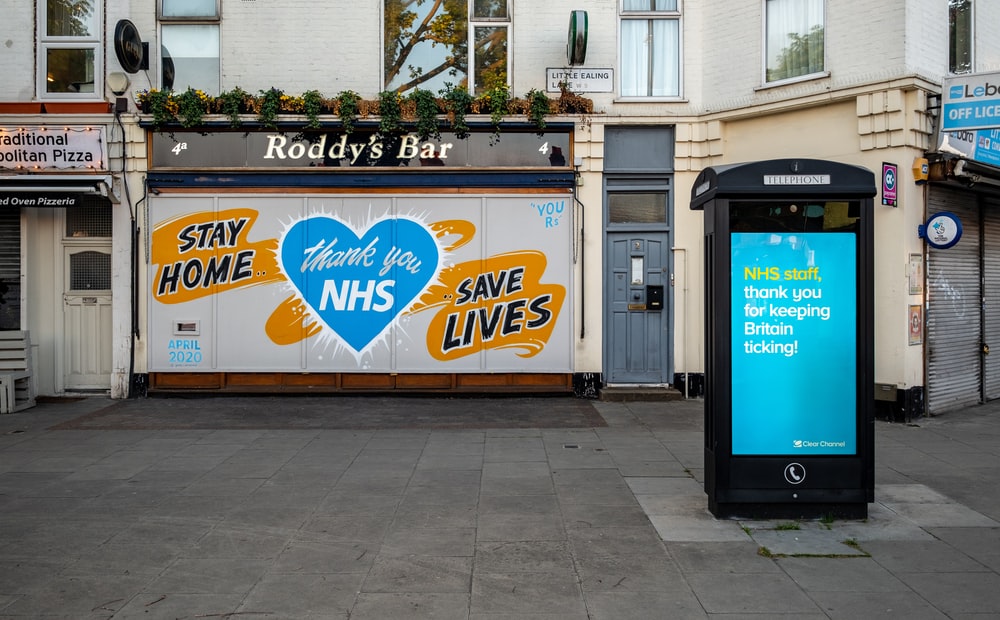Troubled times often call for a change of tack, scenery and perspective. A recent report published by Employer News revealed that a whopping 52% of Brits have considered leaving the UK for a better life abroad.
On the flip side, there are many looking to move to the UK, perhaps in search of a career change, promotion or newfound opportunities for socialising, language learning and even love.
In fact, last year net migration stood at 685000, showing that whilst the UK’s position in the world and on those arriving is forever shapeshifting, some things will, of course, remain the same. They always do, right? For now, these are the need-to-know basics; our 8 things you need to help you settle into the UK legally and smoothly.
To Temper Expectations
Many people considering a move to the UK will believe they have a good knowledge of what life is like in the nation before they visit, thanks to its depiction in popular culture. However, everyday life in the United Kingdom is quite different from what you see or read on the Internet; it’s certainly not all donning tweed and inviting the Queen round for afternoon tea.
It’s wise to temper expectations considerably regarding what life is like in the UK or you’re only going to set yourself up for disappointment. With further seismic change afoot in 2025, and most of not exactly good, it might be worthwhile having a shortlist of other countries to consider.

To Embrace The Much Misunderstood Food Culture
‘British’ food, much-maligned globally, is as diverse and delicious as anywhere in the world, with the country boasting fine-dining temples of gastronomy, greasy spoon cafes, and everything in between.
Alongside famous British dishes such as fish and chips, shepherd’s pie, bangers and mash, and a good ol’ Sunday roast, cuisines from all around the world are popular here, especially in the capital.
Indeed, one of the greatest joys of living in London is that you can find food here from anywhere in the world. Eating out in this city is one of the biggest perks of living in major urban centres in the UK, and the diversity of deliciousness on offer makes the rat race seem almost worth it sometimes.
From Michelin Star restaurants to some of the best markets in the world, when it comes to food, the world is here. Want a traditional Turkish breakfast? No problem. Fancy some West African cuisine? Sure. Keen to sample the food of Bhutan? It’s here.
While you can find a hugely diverse range of cuisines in the capital, if you’re looking to sample some proper ‘British’ gastronomy, some of the best British restaurants to do so in London include Battersea Pie Station, St. John, The Harwood Arms and Poppies Fish’n’Chips. Do give the national cuisine a try, and don’t believe the scurrilous stereotypes about stodge!
Read: 9 of the best gastropubs in London

Visas
Should you still be keen to move to the UK, it’s essential you get to grips with your potential visa status at the earliest given opportunity.
It’s vital to get the right working visa to work lawfully in the UK; otherwise, you may face punishment or deportation. Usually, this is the Skilled Worker Visa (formally known as the Tier 2 general visa), however other options like the Health and Care Worker visa, Innovator Founder visa, Start-up visa, Global Talent visa and more also exist. Each comes with a separate set of conditions and fees.
Check out the Government’s breakdown of the different visas and entry requirements available to you here.
Bringing Family To The UK
Relocating to the UK often means bringing family along, and understanding the requirements is crucial. If you’re moving on a work visa, you can typically bring dependents, including your spouse or partner and children under 18. Each family member needs a dependent visa linked to your primary visa. Ensure your visa category, like the Tier 2 (General) or Skilled Worker visa, allows for dependents, as some, like the Tier 5, have restrictions.
Financial requirements are key; you must prove you have enough funds to support your dependents without public assistance. The amount varies by visa type and number of dependents, so check the latest guidelines on the UK government’s website. Suitable accommodation is also necessary, meeting UK housing standards with adequate space and facilities.
For those engaged but not yet married, a fiancé visa allows your partner to join you in the UK, provided you plan to marry within six months. This visa also requires proof of financial stability and suitable accommodation.
Children will need to be enrolled in local schools, and your dependents must pay the Immigration Health Surcharge for NHS access. Preparing for cultural adjustments is vital; support your family by helping them integrate into the community through local groups and events.

National Insurance Number (NI)
Everyone who works (or intends to work) in the UK is required to have a National Insurance (NI) number. This unique number is an identifier to the government to track the taxes and earnings of the country’s residents. Sometimes this number is enclosed with your biometric visa (found on the back). If not, you have to apply for it. As long as you are qualified to work in the UK, there will be no difficulties getting your NI. Moreover, you can even begin working whilst expecting your NI card to arrive.

A UK Bank Account
You will require a UK bank account to be paid a wage and to pay your bills. To get one, you’ll need a valid passport and proof of a UK address authorised by an official source, such as a utility bill or driving licence.
The common ‘high street’ banks are quite approachable when it comes to opening a new bank account; of course, they would be. Some provide basic accounts without much investigation into your finances, which is usually all you need, while others offer accounts with additional perks with a fairly modest monthly fee.

Healthcare & Insurance
The UK boasts a National Health Service (the NHS) which is available at the point of use. However, to gain access to the NHS, those on a visa will be required to pay an NHS surcharge as part of their visa charges. This fee varies according to the duration of your visa.
After that fee is settled, you will enjoy the same healthcare access as UK citizens. Just take proof of residence to a nearby registration office.

A Plan For Pet Management (Should You Own One)
Do you have a furry friend who you simply couldn’t bear to leave behind? Before you relocate to the UK, it is imperative you know the requirements for importing pets. The United Kingdom has certain limitations on importing pets and animals, and you may find these rules eccentric and obstructive, particularly when discussing quarantine laws.
Your pet (if it’s a dog, cat or ferret – other animals have different, generally less strict requirements) needs to have been microchipped, have a pet passport and have been vaccinated against rabies. A blood test is also likely. Should you and your pet not meet these criteria, expect a four-month quarantine for your animal companion, with the owner (you) footing the bill.
Therefore, you must plan for this well ahead of time. Research the laws associated with pet relocation in the UK thoroughly or consult an agent to get a clearer idea. This will make sure you do not encounter any last-minute issues with your pets during relocation.
The Bottom Line
If not planned properly, relocating to the UK can become overwhelming, with pitfalls common and an often hostile government lurking, ready to catch you out. Thorough research is required if you’re to make the move a success.
*The above is for informational purposes only and should not be taken as legal advice. Details are subject to change, and accuracy cannot be guaranteed. We advise readers to seek professional counsel or consult official government resources for current guidelines.*





